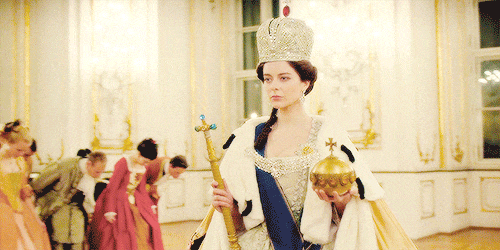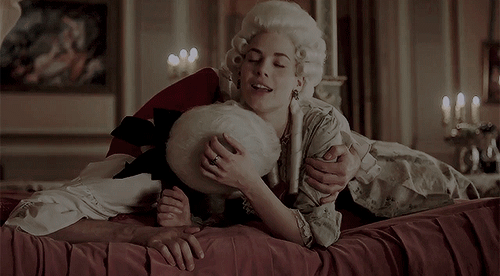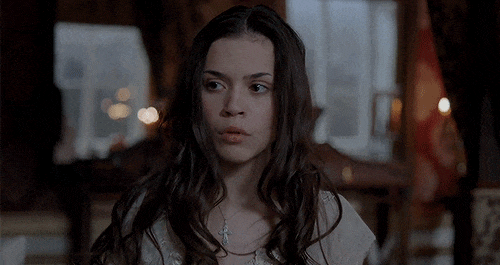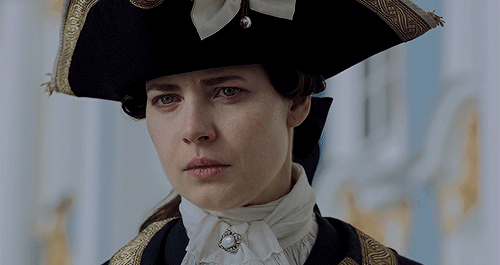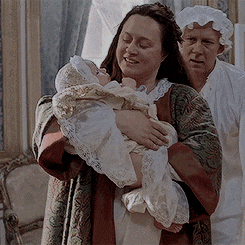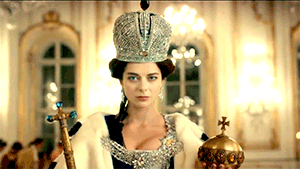Without a doubt, one of the greatest things to come out of this past year was "Hamilton: An American Musical." Not only did it bring a fresh breath of diversity and originality to the world of Broadway, it made American history legitimately popular. As a massive history nerd, this was super exciting for me.
So, I asked myself "what famous leader would I give a musical to if I could?" Seeing as I am better versed in European leaders rather than American ones, my mind immediately went to Catherine the Great. Not only was she a famed Russian queen, she undoubtedly is one of
So, why should she get her own show? Well, allow me to enlighten you.
1. She was a foreigner to Russia and seized her crown in a coup
Catherine was actually the daughter of a Prussian prince (and her name was originally Sophie). After she married Peter (not the Great one; the mediocre one who was the nephew of Elizabeth of Russia) in 1745, Catherine immersed herself in the Russian culture and rubbed elbows with many influential Russians. After Elizabeth of Russia died in 1762, Peter became king with Catherine as his consort. Long story short, he loathed Russia (he was also originally from Prussia) and sought to use his power to benefit Prussia in any way that he could. That pissed off a ton of people and he was quickly arrested by his wife (who had the support of those Russians I mentioned earlier) and abdicated. (Bonus: Peter was murdered a week later by the brother of Catherine's most recent lover.) Seriously. This could easily be the first act of a musical.
2. She was very nice to all of her lovers
Speaking of lovers, Catherine had a slew of them! She had about twelve known "regular" paramours, the most famous being Grigory Orlov (who was instrumental in the success of her coup) and Grigory Potemkin (a nobleman and military leader whom she may have married in secret). Catherine was known to always end her relationships on good terms and would give them titles, lands, castles and serfs (before promptly shipping them off to a far away corner of Russia). Homegirl definitely knew what she was doing.
3. She was an enlightened ruler
Enlightened rulers were an interesting subject during the mid-18th century in Europe. Catherine's approach to embracing enlightened absolutism was equal parts effective and ineffective. While she championed the arts and fought for the betterment of her country as a whole, she kind of ignored the suffering of her subjects and let them wallow in serfdom. (You could blame that issue on the Russian bureaucracy, which would make an awesome onstage rap-battle.) Either way, she's a fascinating case study demonstrating the changing ruling styles of the era, which everyone clearly cares about.
4. She dealt with a ton of uprisings
Uprisings aren't historically that uncommon. However, over a dozen uprisings within one reign is a bit excessive. One of the most infamous rebellions was that of the 1773 revolt of Cossacks (a Russian ethnic group) and peasants led by Emelyan Pugachev. The peasants rebelled due to the less than ideal socioeconomic conditions of the lowest class. Pugachev claimed that he was secretly the allegedly deceased Peter the Great therefore was the rightful heir to the throne (Catherine's claim to power was often challenged by, well, everyone). That rebellion lasted for about two years and ended with Catherine launching a massive attack against Pugachev forces, whom she then had captured and executed. That's a ton of plot arcs right there.
5. It's possible that her eldest son was illegitimate
Had she been born a man, it wouldn't have been that big of a deal for Catherine to have bastard children. Tons of kings did. However, because it's history and she's a woman, it's a bit of an issue if her son isn't actually the son of her tsar husband. That in and of itself creates a plethora of social problems. And, on top of that, Catherine's relationship with her eldest son was said to be very rocky and dysfunctional at best. Who doesn't love a good dysfunctional family subplot?
6. Her death was deceivingly normal
Following her death in 1796, many rumors circulated about the manner in which she died. Some say that she died after trying to have sex with a horse, while others say that she passed on a toilet. The truth? She suffered from a stroke and died quietly in her bed. I have to say, though, that the spread of these rumors is an interesting indication of the way we remember one of history's strongest women. Her sexuality was thrown at her, and I'm sure an unfortunate number of people are familiar with this issue.
Hopefully, we can all agree on why Catherine the Great deserves her spot on Broadway. She was smart as a whip, daring and wise beyond her years. But she was also foolish at times and made poor choices that led to her own paranoia. She was flawed and talented in ways that so many women are and I believe that there are many who could relate to her character.
Obviously, there is no formula for the success that "Hamilton" has achieved, but the fusion of musical theatre and history is a great genre to be explored. "Hamilton" has opened so many doors with what we can do with musical theatre and I look forward to seeing what the next big thing is (especially if the next big thing involves Catherine the Great).




